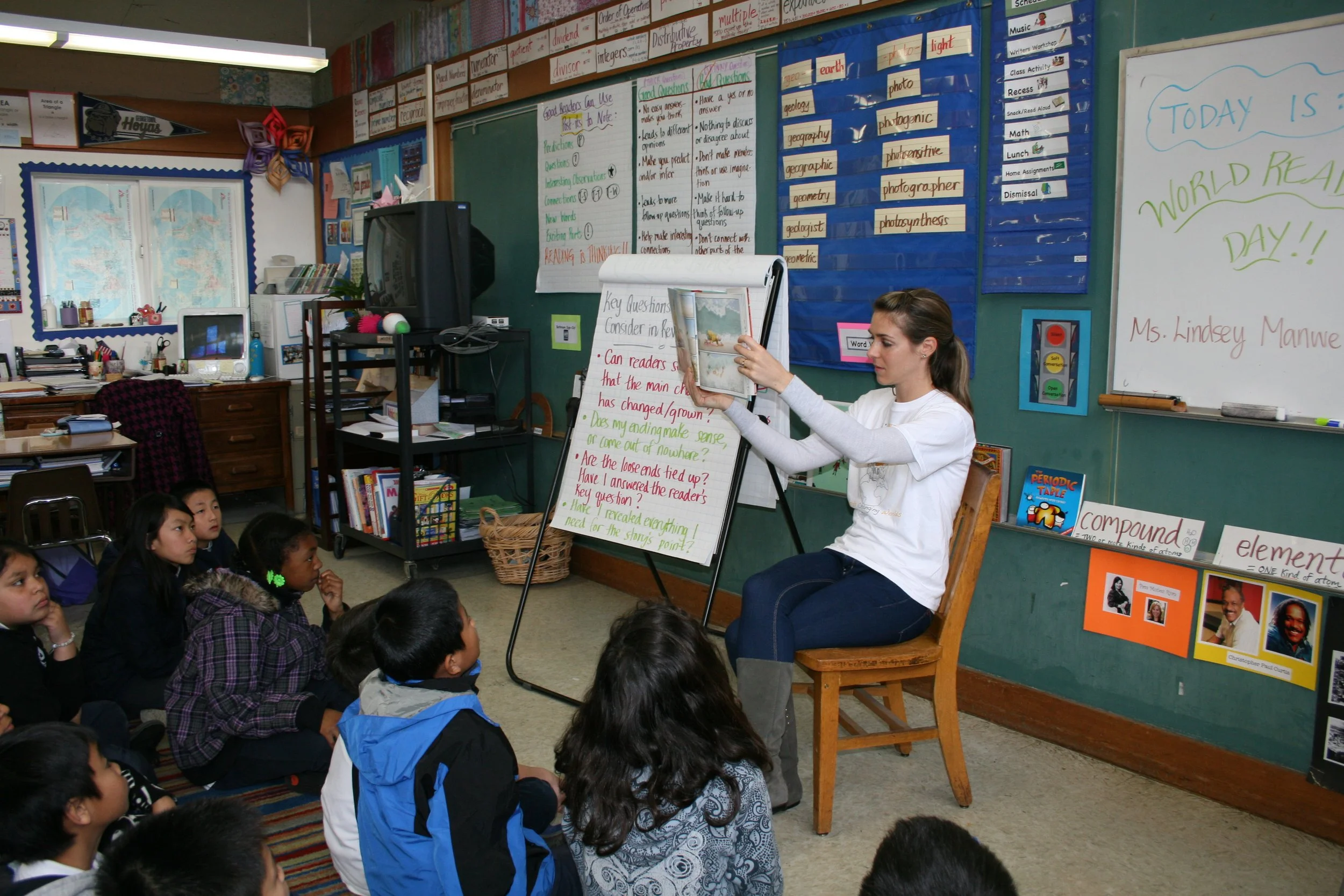Anyone who has had the pleasure of chatting with a toddler knows that from the earliest age children are natural poets who make creative, hilarious and curious observations about their surroundings. But when it comes to reading aloud or choosing books to take on vacation, poetry is often overlooked. Poetry often gets falsely labeled as too abstract or hard to decipher. In reality, poetry is all around us, and there is a reason that Dr. Seuss books have been a staple in every household for decades. Here are five ways to make poetry a favorite family activity.
1. Read, sing and recite aloud. Repeat.
Poems are ideal candidates for your daily read aloud or singalong. (In fact, songs are poetry.) The rhythm and cadence of poetry is so pleasing to the ear and these patterns make it easy for your child to remember and recite. Make reading a poem before dinner - or another time of day when you are all gathered - a family ritual. Dip your toes in the water by reading a poem that you already love or read out the lyrics to a favorite song. From there explore new poets that you have never read. Ask family, friends, teachers and your local librarian for more suggestions.
Through reading aloud your child is able to read above his independent reading level. Guide your child to appreciate the beauty of the language by reading the poem more than once, and by asking questions and sharing your own ideas and observations. For example, "Why do you think the author wrote this poem?" "What do you picture in your head when you hear this poem? Why?" "I love the way the author compares thunder to a grumpy old man."
2. It's not a crime if it doesn't rhyme.
Children often resist writing because it feels cumbersome to play within the rules of grammar or other conventions of English. At the same time, some children clam up when it comes to poetry because they think it all has to rhyme, and that can feel intimidating too! Liberate your child from these fears by explaining that poems come in all shapes and sizes. Some have unique structures, but some are simply free verse where anything goes! Explain that the most important thing is to communicate an idea, feeling, observation or memory with the reader of their poem. It is a powerful feeling to be in full control of how you will say exactly what you want to say. Reluctant writers often thrive when they are introduced to poetry. Encourage your child to try on all the different types of poems - haiku, limerick, acrostic, rhyming couplet - to see which feels good for them. Celebrate every poem that is written.
3. Be a poetry collective.
One of our LitWorld LitClubs is an intergenerational group that brings together young boys in foster care and elders of the Hebrew Home for the Aged. They meet once a month to document their shared experiences through poetry. The poems they have written together are always moving and honest and weave together into something beautiful every time. You can create the same experience at home by starting with a simple prompt and having each member of your family respond to the prompt either out loud or written on a shared piece of paper. If you choose to answer out loud, make sure someone is designated as a recorder so that when you have all added your line to the poem you can hear the finished piece. You may choose to go around the circle multiple times to end up with a longer poem.
Some sample prompts could be:
I have the courage to...
I wonder why...
I wish I could...
I am... (Try asking everyone to respond to this using a common theme - you could each compare yourself to an animal or a color and give a simple, short explanation for the choice.)
4. Start with what you know.
Sometimes reluctant poets will find it easier to do a "found poetry" exercise to get their words flowing. Gather your family together and choose a topic to do a free write about for specific amount of time, usually between 2-5 minutes. Take turns picking the topic and try using family photos as prompts as well, asking everyone to write down their memory from that moment. When time is up you can take a few minutes to share what you have written. Next each member should go back and reread what they have written, underlining the words or groups of words that stand out. Rewrite all of the underlined words to form a poem and share out loud with each other.
5. Make an anthology
Honor the beautiful poetry your family is creating by curating it into a published anthology accompanied with photos or illustrations. This can be a traditional scrapbook or journal or a digital anthology. There are many great apps and companies that will allow you to layout the design of a photo book or scrapbook and will mail you a print version. Make your child the lead designer of the anthology. She may choose a specific theme or keep it more general. Introduce the idea of the anthology early on so that the process of writing poems and the process of documenting those poems can inspire each other.
This post is part of an ongoing summer reading and writing series. Check back often for more tips to make this a season of stories.








